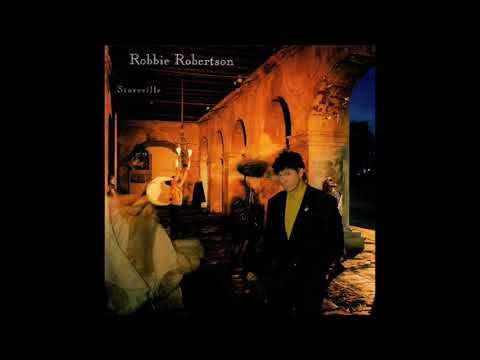Robbie Robertson, Dave Alvin, Mellencamp and Seger
From the Archives: One of rock's greatest songwriters and most distinctive guitarists, Robertson in his quest to top himself
Robbie Robertson feels compelled to make each album a big statement and his second solo work, Storyville (Geffen) is no exception. One of rock's greatest songwriters and most distinctive guitarists, Robertson -- in his quest to top himself and create a distinction between his new music and his work with the Band -- has forgotten one of music's most important maxims: Less is more.
More focused and satisfying than his solo debut, Storyville is burdened by grand arrangements and overdone production leaving little room for spontaneity, which is not to say it's uninspired. Beneath the arrangements, production and often contrived ambiance, are moving songs and soulful performances, despite the fact that Robertson's voice is rarely more than a hoarse, smoky whisper. It soon becomes apparent that the songs aren't all that different than those he wrote for the Band and if Storyville was a Band album, people would be raving.
As to the album being about Storyville, a fabled place in New Orleans where musicians and other midnight characters partied all night and took part in other up-to-no-good activities, it doesn't really matter, it would be a great title for a Robertson album because he's been a master storyteller all along. Like his best work, most of the songs here tell a story and like his last album, more than a few hint of autobiographical allegory.
Much of Storyville was recorded in New Orleans using several of its greatest musicians, but it is not, nor is it trying to be an album of New Orleans music. It is Robbie Robertson music with touches (more than some critics would have you believe) of the New Orleans sound. Robertson was influenced by and involved with New Orleans music long before it was trendy and that he should now choose to record in and work with New Orleans musicians is no surprise.
Keep reading with a 7-day free trial
Subscribe to The Joker and the Thief — Newsletter to keep reading this post and get 7 days of free access to the full post archives.



